The Rev. Delman Howard Retirement

We congratulate the Rev. Delman Howard on his retirement from pastoral duties from the African Methodist Episcopal (AME) Church. He has served as an itinerate elder in the AMEC for 41 years. At the approval of the 98th Session of the Southern California Annual Conference from October 19-23, 2022, the Rev. Howard will move to superannuated status.
Pastor Delman Howard was born and educated in Elgin, Illinois. He graduated from Elgin High School, where he was an outstanding athlete. He continued his education and received a bachelor of science in religion from the University of LaVerne (La Verne, California), a master of theology from Bethel Theological Seminary (San Diego, California), and continuing education credit from Iliff School of Theology (Denver, Colorado). He entered the itinerant ministry through the Chicago Annual Conference, where he was ordained as a deacon. While attending Bethel AME Church in San Diego, California, he was ordained an elder in the Southern California Conference. Pastor Howard has pastored for 47 years in four annual conferences within the Fifth Episcopal District of the AME Church and served as the presiding elder of the Pacific Northwest Conference. His final pastoral charge was at Johnson Chapel AME Santa Ana, California.
Pastor Howard served as a member of the board of examiners in four conferences of the Fifth
SEPTA Renames Station for Richard Allen
...continued on p4

The Southeastern Pennsylvania Transportation Authority (SEPTA) representatives gathered with elected officials and community leaders to celebrate the renaming of Richard Allen Lane Station on the Chestnut Hill West Line.
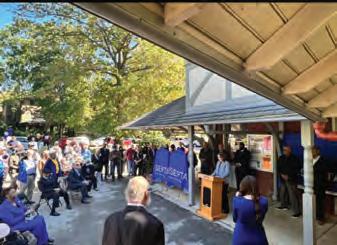

New historical panels honoring Allen were also unveiled and are now on permanent display at the station at 200 W. Allens Lane in the Mount Airy neighborhood of the city. It is near the intersection of Cresheim Road and Allens Lane.
The Southeastern Pennsylvania Transportation Authority worked with leaders of the First Episcopal District, African Methodist Episcopal (AME) Church, to design the 2-foot by 3-foot decorative panels, which tell the story of Allen’s



contributions to racial justice in Philadelphia as a preacher during the late 18th century. The panels will be in the garden area of the outbound side of SEPTA’s Chestnut Hill West Regional Rail Station (Philadelphia).
“Our stations can be so much more than a place to wait for a train or a bus. These are wonderful spaces for sharing our history through public art that can inform and inspire,” said SEPTA General Manager and CEO Leslie S. Richards. “SEPTA is honored to have worked with the community on this very important and enduring effort at Richard Allen Lane Station.”
Allens Lane was originally named after William Allen, the 26 th mayor of Philadelphia. But William Allen was an enslaver and a British

...continued on p3
The

Disappearing
Act: The Silencing of Voices in Church Spaces
 Rev. Tiffany Brooks, 2nd Episcopal District
Rev. Tiffany Brooks, 2nd Episcopal District
Life has a way of trying to silence you. In so many experiences and in several ways, it will try to mute you. In some instances, it is successful and in others it is not. Life includes people, places, spaces, and things that will try to choke all the voice out of you. Sometimes it’s unintentional and by design, sometimes it is a random string of circumstances, and other times it is intentional. Most often, one’s voice begins disappearing due to intentional ploys and misinterpreted views of humbleness and humility. Life and circumstances will draw many to believe that when they remain silent and when they allow their voices to get quieter and quieter especially amid tension that this is an exercise in humility, when truly it is and has become more of a safeguard, a matter of protection of oneself rather than an act of walking without pride and arrogance. The terms “humility” and “humble” have been misused, misquoted,
...continued on p2
The United Methodist Church Elects Diverse Class of Bishops





“Good Times” at Ward Memorial AME Church
Sandra Bonner Hadley, 2nd Episcopal District

The Holy Bible reminds us in Psalm 30:5 that “For his anger is but for a moment, his favor is for life; weeping may endure for a night, but joy comes in the morning.” In times like these, it can be so easy to get stuck in the weeping that we neglect embracing the joy to come. In efforts to cling to the joy and moments of celebration, it was a breath of fresh air to celebrate the 145th anniversary and renovations of Ward Memorial African Methodist Episcopal Church on the good morning of May 8, 2022.
During the fifth month of the year, which symbolizes the grace of God at Ward Memorial African Methodist Episcopal Church

Freedom: Rev. Dr. Nikia S. Robert and the Abolitionist Sanctuary





p3
Finding
p13
Rev. Dr. Stephanie N. Taylor, MD, Appointed as Interim Senior Associate Dean for Faculty and Institutional Affairs and NIH Advisory Council
Ohio South Ohio Conference Lay Organization Living a Global Witness Ministry That Transforms, Transcends, and Liberates: We Acknowledge Third Episcopal District Lay Legendary Leadership
p16
NOVEMBER 2022 VOLUME 172, NO. 2 $3.25 thechristianrecorder.com
p8
...continued on p3
and
weaponized to silence others, especially by those whose egos won’t allow them to admit that they live their lives through the lens of fear, insecurity, and intimidation. Those who quiver when any modicum of self-confidence and intentional purpose walking is displayed by others. They tend to forcibly insert unasked for thoughts and opinions to quiet the confident and reassured, while trying to mask their own insecurities. They will manipulate people and circumstances to favor themselves while quietly tearing down the confidence of others. Often, the disappearing act of one’s voice is a slow process in which the one whose voice is being silenced doesn’t even recognize how much lower the volume is getting and has gotten. Silence, quietness, and stillness that is requested by God is different from silence, quietness, and stillness that is requested and sometimes forced upon by others. It is imperative to know the difference.
I wish that I could say that this was a rare occurrence, however, it is not. It is very biblical in nature. It is Sarah
against Tamar, Saul against David, Geshem, Sanballat, and Tobiah against Nehemiah, the disciples against Mary and just about everybody against Jesus. It is generational and unfortunately it has become the norm in our pews and pulpits. It is in the structures and the systems created and withheld to maintain and stroke the egos of many men and minimal women. It is political, it is nepotism, it is fear mongering, and it is an offense against the body of Christ. It is a stench. One of the issues is the unconscious misinterpretation of believing that humility is synonymous with weakness. One of the issues is believing that just because one’s own voice has disappeared that they must snatch the voices of others to restore their own or for their misery to receive company. One of the issues is that imagined threats have been made a reality in the minds of many while ignoring the fact that the threat is only a function of the imagination. Most often it is not and never has been real.
The decline that many churches are experiencing is in part due to the disappearing, quieting, and silencing
of others, which has unashamedly continued to replicate itself every sermon, clergy, and lay person at a time. It shows up in declining attendance, disorganized ministry events, high turnover rates, church hopping, and unnecessary meetings. It is a reality that we must address. Why would anyone who is already questioning their voice, lend what they do have to a space that doesn’t acknowledge or honor it?
One can spend time analyzing the many variables that contribute to this generational issue and its root causes, but there simply is not enough time, not enough pages, and an overwhelming number of churches. For that reason, I pose several questions for reflection. What causes the voice snatchers to act in such a way, how does one restore their own voice, what can and should we learn from the biblical accounts, what position does one find themselves in, and overall, what shall we say to these things?
To the voice snatchers, may you come into a greater and accurate understanding of mility and may you apply it to your own life with ease. May
you recognize the beauty in your own voice so that you are able to welcome other voices. May you love your voice again. May forgiveness find you. May you share space and make room for the voices around you.
To the voice who has been quieted, who has experienced silencing and is currently in hiding, may your voice be restored to its full strength. May you come into a greater understanding of humility and apply it to your own life with ease. May your confidence be renewed and restored. May you love your voice again. May forgiveness be your portion, prayer be your posture, and strength guide you to walk away from silencing spaces. May you find and/or create the space that will welcome your voice with open arms.
To both, may you find peace and healing.
To the one who doesn’t know which one they are, may the Lord show it to you and may you move accordingly.
To you oh silenced one, here is your sign to raise your voice again. We are and have been waiting for you.
Welcome back. ❏ ❏ ❏
THE CHRISTIAN RECORDER: The Christian Recorder (ISSN 1050-6039, USPS 16880) is the of icial organ of the African Methodist Episcopal Church and a member of the Associated Church Press and the National Newspaper Publishers Association. Founded in 1852, it is printed monthly by the AMEC Sunday School Union, 900 13th Avenue South, Nashville, TN 37212. Periodicals Postage Paid at Nashville, TN.
POSTMASTER: Send address changes to The Christian Recorder , 900 13th Avenue South, Nashville, TN 37212. Subscription price is $36 per year. Single issues are $3.25.



THE CHRISTIAN RECORDER


900 13TH AVENUE SOUTH #220 NASHVILLE, TN 37212

Of ice: 615.601.0450 General queries: editor@thechristianrecorder.com Submissions: articles@thechristianrecorder.com
Views expressed by the editor and/or other writers do not necessarily re lect the of icial views of the African Methodist Episcopal Church. TheChristianRecorder welcomes letters from its readers on matters of general interest. Letters must be exclusive to TheChristianRecorderand must be signed, including the writer’s home address and business telephone number. No defamatory, libelous or slanderous letters will be printed; and TheChristianRecorderreserves the right to reject or edit any letter or article to conform to good taste, style and space requirements. Although we are unable to acknowledge those letters we cannot publish, we appreciate the interest and value the views of those who take the time to send us their comments. Letters intended for publication should be addressed to The Christian Recorder/Letters to the Editor, 900 13th Avenue South, Nashville, TN 37212. All photograph submissions are the property of The Christian Recorder and will not be returned.
Bishop David R. Daniels, Jr., Chair of the General Board Commission on Publications Rev. Dr. Roderick D. Belin, President/Publisher, AMEC Sunday School Union Dr. John Thomas III, Editor, The Christian Recorder
ONLINE OR BY MAIL 2 | PAGE The Christian Recorder THECHRISTIANRECORDER.COM NOVEMBER 2022
...From The Disappearing p1 thechristianrecorder.com
Rev. Dr. Stephanie N. Taylor, MD, Appointed as Interim Senior Associate Dean for Faculty and Institutional Affairs and NIH Advisory Council

Rev. Stephanie N. Taylor, MD, the administrative pastor of Bethel AME Church, New Orleans, LA, was recently appointed as the interim senior associate dean for Faculty and Institutional Affairs for the Louisiana State University School of Medicine. She was also introduced by Dr. Anthony Fauci as a new member of the National Institute of Allergy and Infectious Diseases/National Institutes of Health (NIAID/NIH) Advisory Council. The NIAID Council advises on policy, clears concepts, and reviews programs for the NIH.
Dr. Taylor is professor of Medicine and Microbiology in the Section of Infectious Diseases at Louisiana State University Health Sciences Center, New Orleans, LA. She is board certified in both Internal Medicine and Infectious Diseases and her clinical practice and research are focused on sexually transmitted infections, STI-related diagnostic trials, and STI clinical drug trials. She has authored several book chapters and 80 journal articles, including one as lead author in the prestigious New England Journal of Medicine.
Dr. Taylor is also medical director of the LSU Infectious Diseases STI research program and laboratory, the LSU-CrescentCare Se xual Health Center, and the Louisiana Office of Public Health STD/HIV Program. She was recipient of a Distinguished Career Achievement Award presen ted by the American STD Association and she is an associate editor of Clinical Infectious Diseases, the flagship journal of the Infectious Diseases Society of America.
“Dr. Taylor is one of our most talented physician-scientists,” says Dr. Steve Nelson, LSU Health New Orleans interim chancellor and School of Medicine dean. “This appointment reflects the excellence of LSU Health New Orleans faculty and the enormous contributions they make to Louisiana and the nation.”
This article was submitted by retired general officer, Dr. Johnny Barbour, Jr.

loyalist who was condemned in his lifetime by abolitionists for his stance in favor of the continued enslavement of black people. Therefore, earlier this year, the Philadelphia City Council passed a resolution introduced by Councilmember Cindy Bass to rename the street to honor religious leader Richard Allen.
“We must closely examine popular narratives we’ve been so conditioned to embrace, especially versions of the past that marginalize the value of black people and other communities of struggle,” said Pennsylvania State Representative Christopher Rabb. “Changing who Allens Lane is named after is a step in the right direction towards achieving racial equity and inclusion.”
Allen co-founded the Free African Society and the African Methodist Episcopal Church, where he became a bishop. The AME Church is the first independent black denomination in the United States. He opened his first AME Church in 1794 in Philadelphia, the mother church of the first national black church denomination in the United States. It rests upon the oldest parcel of land in the country, continuously owned by African Americans. ❏ ❏ ❏
we were able to embrace our season of “good morning” and give praise to our good God for all the great things that he has done. During the morning worship experience through the prevalence of success stories, the guest preacher, the Reverend Lee P. Washington’s comparison to a TV sitcom from the 70’s, “Good Times,” was used to commentate the 145th anniversary and the completion of a one million dollar renovation was intentional and skillful.
As we embraced the grace of God, we were able to celebrate the goodness of God through the remembrance of the good times. The b uilding renovations were completed at a time when many churches did not make it, but with the grace of God we not only completed the project, but we did so while having a “good time.”
Ward Memorial African Methodist Episcopal Church, under the leadership of a young dynamic pastor, the Reverend Dededrick O. Rivers, completed a one million dollar renovation during the “Good Times!” What may have been a season of weeping for others we were able to be a living testimony that joy will always prevail.
The Rev. Lee P., as he is affectionately called by many, described our struggles by reciting the lyrics from “Good Times” from the 1970’s sitcom: Anytime you meet a payment-good times, anytime you need a friend-good times, any time you’re out from under-good times, not getting hassled, not getting hustled, keeping your head above water, making a wave when you can, temporary layoffs, scratching and surviving , hanging in a chow line, ain’t we lucky we got em-good times, just looking out the window, watching the asphalt grow, thinking how it all look, hand me downs-good times, yeah-good times!
And with the many kumbaya moments ...we survived!
We are aware that without God we never would have made it. We are grateful that we have made it to experience good times so that we may be good stewards of our testimony to share with others that the same God who did it for us can bless you exceedingly, abundantly above all you could imagine. Society may say that it appears we are at risk for a recession but at Ward Memorial we are embracing the season to rejoice. We truly praise God from whom all blessings flow and invite others to hold tight to the “Good Times.” ❏ ❏ ❏
THECHRISTIANRECORDER.COM The Christian Recorder PAGE | 3 NOVEMBER 2022
...From SEPTA p1
...From “Good Times”
p1
Running on Empty
 Rev. Dr. Alfonso Wyatt, Columnist
Rev. Dr. Alfonso Wyatt, Columnist
Most cars have a feature that will let the driver know when fuel is running out. For some people, it is a sign to get gas at once. For the more mathematically astute, it is an opportunity to calculate how many more miles they can travel before running out of gas. I remember my shock driving to an appointment and not noticing my low-fuel indicator light was on. I was in heavy traffic and faced the real possibility of running out of gas. At this point, all I could focus on was getting off the bridge an d finding a gas station as I wondered how long I had been running on empty.
I want to talk to people with responsibilities over other people’s well-being. You are a tested leader, a symbol of strength with a desire, mission, and calling to come through for others, especially when things are tough. You go without sleep so others can sleep. You push yourself beyond exhaustion. You ignore old aches or new pains; you take the late-night and earlymorning calls, and if there are no calls, you do wellness checks. The concept of having “me time” is just that, a concept rooted in blissful yesterdays. However, the push to be in charge, answer questions, respond to incessant needs, skip dinner, and try to attend to family and personal needs has you running on empty.
Let me take you back to when I discovered my low fuel indicator light was on and see if there are

some tips that can help readers. I first looked for a gas station (you must do the things that help you refuel). I then filled up the tank (make time for self-care). I tried to be mindful moving forward of how much gas I had in the tank before driving and not wait until the fuel indicator light came on before refueling (proactive health strategies). Beloved, if you are running on empty by desperation or choice, it won’t be long before you run out of fuel. If there was ever a time for conscious and consistent self-care, the time is now because it is clear that the incessant demands of the day will not cease.
Let me say, leader to leader, please don’t take pride in being able to run on fumes by denying yourself rest when rest is called for. You may have convinced yourself from
a sense of duty or pressure that it is difficult to slow down. If you don’t take proper care of yourself, you cannot take care of others, no matter how hard you try or how desperate the situation. Also, know that our body will take rest (out of nowhere, you become bedridden) if you do not rest. It is amazing the number of people in helping professions who feel guilty about taking care of themselves. One of the best things a person can do to take care of himself or herself is to get a good night’s sleep. There is a price to pay for only getting three or four hours of sleep. Getting rest helps the body rebuild for the next day’s demands. The body also uses sound sleep as the time to rebalance body functions–so get that laptop or cellphone out of the bed.
We are still in unprecedented
times marked by congregational, economic, political, social, community, and family challenges. No one person, no matter how dedicated, responsible, gifted, or called, can solve the present and looming challenges on the horizon no matter how long he or she stays up. With that said, it is imperative for pastors, lay leaders, parents, and decision-makers who have responsibility over the lives of others to make sure you first take responsibility for your own life. Beloved, the question before you is direct and clear; if you know you are depleted, will you stop to fill up your spiritual, mental, or physical tanks, or have you already calculated how far you could go running on empty?
And I say, “O that I had wings like a dove! I would fly away and be at rest.” Psalm 55:6 ❏ ❏ ❏
Rev. Justin Powell Presents The Evolution
On October 20, 2018, the Rev. Justin Powell recorded his first full length project entitled The Evolution with his awesome singing group Adoration, affectionately known as “JPA.” Justin Powell & Adoration debuted in August of 2017 and has been blessed to further their ministry with this full body of music. ‘The Evolution’ features some of the east coast’s best gifts in singing and writing.
On September 17, 2022, The Evolution was released on all digital music outlets. Its radio single is “I’ll Never Be the Same” led by Ashely Howard. On December 3, 2022, Justin Powell & Adoration will celebrate 5 years of ministry and will release the physical project on CD.
The Rev. Justin Powell is the minister of music of the 1st Episcopal District under the leadership of Bishop Julius H. McAllister and the director of music at Bethel AME Church in Wilmington, DE under the pastorate of the Rev. Dr. Stanley Hearst II. The Rev. Powell’s roots go deep in the AME Church and he has served in many capacities over the years.
Get your digital copy today! Available everywhere you stream music! Justin Powell & Adoration The Evolution. ❏ ❏ ❏
Episcopal District. He also served in the communities in many capacities, including but not limited to the following: president of the Interfaith Alliance, Fresno, California; board of directors of the Sickle Cell Foundation, Albuquerque, New Mexico; and the Housing Authority Governmental Appointment, state of New Mexico. In addition, he served as the secretary of the Pacific Northwest Annual Conference, an annual conference trustee, and most recently, he received the 65th California Legislative Committee’s community service award.
At the 2004 General Conference, he was elected as an alternate member of the Judicial Council. In 2011, the denomination elected him to serve as a full member, serving as the Judicial Council chaplin until 2016. Pastor Howard is wonderfully married to Evangelist Kimberly Howard, with seven children and six grandchildren. ❏ ❏ ❏

4 | PAGE The Christian Recorder THECHRISTIANRECORDER.COM NOVEMBER 2022
...From The Rev. p1
‘Tell What Happened’: Pastor and Last Surviving Eyewitness Urges Christians to Remember Emmett Till
Emily McFarlan Miller, ReligionNewsService
WHEATON, Ill. (RNS) — The Rev. Wheeler Parker, Jr. still remembers clearly the moment as a teenager he thought he was going to die.
Parker was 16 years old, visiting family in Mississippi, when he woke in the early morning hours to the sound of voices in the house. Moments later, the door to his bedroom opened and a man pointed a flashlight and a pistol in his face.
He shut his eyes tight, but the shot never came.
The man moved on to the next bedroom and the next before finding and kidnapping his cousin — Emmett Till.
It was the last time he saw his best friend alive, Parker, now in his 80s, told a packed concert hall Tuesday night (Oct. 25) at Wheaton College, the evangelical flagship school in the Chicago suburbs.
What happened next — Till’s brutal murder, his mother’s decision to allow an open casket at the 14-yearold victim’s funeral, so the country could see what had been done to her son — shone a light on racial violence in the United States and became a catalyst for the Civil Rights Movement.
“A picture’s worth a thousand words. That picture made a statement. It went throughout the world, all over the world, and it still speaks,” Parker said of the photographs of Till in his casket, taken by David Jackson and first published in Jet magazine.
The story of Till continues to resonate because it “provides us with a lens to understand racial conflict in our own moment,” said Theon Hill, associate professor of communications at Wheaton College and primary organizer and moderator of Tuesday’s event, “Remembering Emmett Till: A Conversation on Race, Nation, and Faith.”
“When we see George Floyd killed right in front of us due to the officer’s knee,” said Hill, “when we see Breonna Taylor’s death, when we see Ahmaud Arbery, we’re trying to make sense of what’s happening, and Till’s death, as tragic as it will always be, provides us with a grammar to understand this is what’s happening and this is how you might respond in your moment.”
The enduring relevance of Till’s death is apparent in the Emmett Till Antilynching Act, making lynching a federal hate crime and signed in March by President Joe Biden, nearly 70 years after Till’s murder.
It’s also borne out in the critical acclaim for a new film, “Till,” centering on Till’s mother, Mamie Till-Mobley, and her fight for justice for her son, which appears in theaters nationwide this week. In January, Parker will publish his recollections of his
cousin, “A Few Days Full of Trouble: Revelations on the Journey to Justice for My Cousin and Best Friend, Emmett Till.”
It was 30 years before anybody asked Parker his account of what had happened over the handful of days in 1955 he and his cousin, who lived in Chicago, spent in Mississippi visiting family, according to Parker, the last surviving witness to Till’s abduction.
In Parker’s account, Till is a jokester, the boy next door he accompanied fishing, picnicking, and on other trips. When his cousin found out he was planning to take the train down south to visit his grandfather, he insisted on going too.
“If you didn’t live in Mississippi at that time or experience what it was like, you have no idea what it was like,” Parker said.
He had lived in the south until he was 7 and knew “what you had to do to stay alive and what could happen to you,” he said.
Till didn’t.
When the younger boy whistled in the presence of a white woman outside a store, Parker said, the cousins left in a hurry. He worried what could happen in a place and time when a black man couldn’t so much as look at a white woman, he said.
But days passed, and they’d nearly forgotten about the incident. Then came the moment Parker

heard voices in his grandfather’s home at about 2:30 a.m. on a Sunday morning, asking about the boys from Chicago.
“Sunday morning should be the safest place on earth for a young man in his house — on Sunday morning, waiting to go to church,” he said.
Shaking and sure he was about to die, he prayed, “God, if you just let me live, I’m going to get my life together.”
That Monday, he returned to Chicago alone, his life changed “completely,” said Parker, now pastor and district superintendent of the Argo Temple Church of God in Christ in Summit, Illinois.
What happened to Till changed the country, too.
Dave Tell, author of the 2019 book “Remembering Emmett Till,” told the audience Tuesday night that he had become invested in civil rights because of Till’s story.
“The Till story prompted a new generation to stand up for justice, and I think the good news of the night is that the Till story — Rev. Parker’s story — is still motivating a new generation,” Tell said.
It’s a story, he said, the U.S. needs to hear today more than ever. Considering the stories of Floyd and others against the backdrop of Till’s murder, it’s hard to minimize their killings as “a problem of a bad apple or bad cop,” he said.
And the church has a role to play in sharing that story, both Tell and Parker agreed.
The biblical book of Genesis tells the story of Abel, murdered by his brother Cain, Tell pointed out. In the story, God says Abel’s blood cries out to him from the ground, where Cain has tried to bury what he did.
If God demands that voices that have been buried be brought to light as part of the work of justice and healing, shouldn’t the church? Tell asked.
“We’ve got to keep the legacy going — got to keep the story going — and not with animosity,” Parker added.
“Just tell the story. It’s history. It’s real. Tell what happened,” he said.
(https://religionnews.com/2022/10/26/tell-what-happened-pastor-and-last-surviving-eyewitness-urgeschristians-to-remember-emmett-till/)
THECHRISTIANRECORDER.COM The Christian Recorder PAGE | 5 NOVEMBER 2022
THIS STORY AT RELIGIONNEWS.COM
❏ ❏ ❏
READ
SERMON EXCERPT
“Jesus Got Up, So Can You!” Luke 18:31-34
Dr. Betty Holley, Contributing Writer
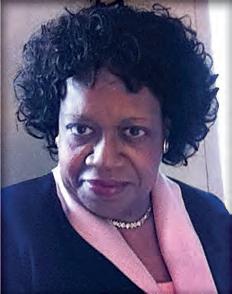
There are times, on life’s journey, we feel we have been thrown too many wicked punches. Have you ever felt yourself going down for the count? How did you respond? Did you get up, or did you stay down? Sometimes forces are working against us that we cannot see, sending us to fall on the ropes of the boxing ring more times than we would like. When life hits, it seldom slaps or throws baby punches. It hits hard! When life hits, it seems that everything happens at the same time. Those are the times that we agree with Job that “man born of a woman is full of trouble.” Job would know, especially since he experienced the full range–the death of his family, personal sickness, and financial failure, all at the same time.
One Sunday morning over 2,000 years ago, we saw our Jesus; beaten, ridiculed, nailed to a cross, and speared in the side. We saw him die on an old rugged cross, buried in a grave, but he got up from the grave on that third day morning. If the resurrection of Christ means anything to believers, it is that Christ, as a man, took the same punches that life throws at us: disappointment, betrayal, physical abuse, persecution, and every other problem we face. He went down but gained the strength to rise again.
In this text exist three keys necessary to unlock the truth of the resurrection’s power in our lives, which will enable us to get up when we have been knocked down. First, we must stick to our principles. The very first way to go down and stay down is to compromise our principles. A godly man or woman is guided by a set of beliefs about God. Even when a believer is knocked down, his/her principles do not change. Christ gave us a glaring example when he was persecuted and tormented. Even after being spit upon, tortured, and crucified by the Roman soldiers, Jesus remained true to the principle of love, even for his enemies.
Second, we must never lose our passion if we

want to get up from whatever situation in which we find ourselves. Our passion is the energy, enthusiasm, and excitement we bring to life’s work. The religious leaders had difficulty dealing with Christ because he never lost his passion, even hanging on the cross. On the cross, Christ never lost that passion, bringing people to God. In one breath, he invited a thief to join him in paradise. He asked God to forgive them in another breath, for they did not know what they were doing. When the devil wants to keep a good man or good woman down, he goes after his/her principles, then works on his/her life’s passion. If you want to get up, stick to your principles and never lose your passion.
Deaconess Opal Lee, the “Grandmother” of
Barbara Johnson, 9th Episcopal District
TheJoyofJuneteenth
Juneteenth,
Third, we must always keep our sense of purpose in focus. When we keep our sense of purpose in focus, we keep getting up when we are knocked down because there is something within that demands us to get up. When we are driven by a godly sense of purpose, there is no end to what we can do. As Christians, we celebrate the resurrection because it brings us hope. We are overjoyed because Christ overcame every obstacle and arose triumphantly over death, the devil, and the grave. We are happy because Jesus proved beyond the shadow of all doubt that “you can’t keep a good man or a good woman down.”
Anybody that knows Jesus and has an established relationship with him will always be able to get up, so long as you stick to your principles, hold on to your passion, and keep your sense of purpose in focus. In times of struggle, remember the events of calvary and say to yourself, “Jesus got up, and so can I!” ❏ ❏ ❏
Visits St. John AME Church
Sunday, August 28, 2022, was Deaconess Opal Lee Day at St. John AME. Dr. Lee, known as the “grandmother” of Juneteenth, was in Huntsville for a speaking engagement at the University of Alabama, Huntsville campus. As her team planned her trip, one thing became very apparent, on Sunday she wanted to attend a service at the African Methodist Episcopal Church. Dr. Lee had met Pastor Wright and the delegation from St. John in Atlanta at the Christian Education Congress in July. She hinted at the time, that she would be visiting Huntsville and would visit St. John.
The church was all abuzz on the morning of the 28th. Designated seating had been arranged for her entourage. She was bringing with her a journalist from the local news station in Fort Worth as well as her escorts and security. Deaconess Lee was at St. John as a guest, she was not on the program to speak. She was elated to be sitting with St. John’s deaconesses, Barnes-Ivery and Mary Powers, since she is a deaconess at her church, Baker Chapel AME in Fort Worth, Texas.
About mid-way through the service, before Pastor Wright preached, he introduced and welcomed Deaconess Lee to St. John and to the service. She came forward and expressed how happy she was to be at St. John, and she could not wait to get back to her church and let them know how much she enjoyed the service.
Deaconess Lee is the oldest living board member of the National Juneteenth Observance Foundation, a national movement started by the late Dr. Ronald Myers, to have Juneteenth declared a national holiday. Dr. Lee was present on June 17, 2021, when President Joe Biden signed the Juneteenth National Independence Day Act, thereby establishing June 19, or “Juneteenth,” as a federal holiday. Ms. Lee said on that day, “Now we can celebrate freedom from the 19th of June to the 4th of July!” Texas Congressman Marc Veasey and 33 other
members of Congress nominated Ms. Lee for the 2022 Nobel Peace Prize for her work to “advance understanding and respect between individuals of different backgrounds and socioeconomic levels.” The 2022 Nobel Peace Prize ceremony will be on Saturday, December 10, 2022.
At the conclusion of the service, Deaconess Lee was escorted to the narthex to prepare for a signing of her book, The Joy of Juneteenth and to take pictures with as many people as possible. ❏ ❏ ❏

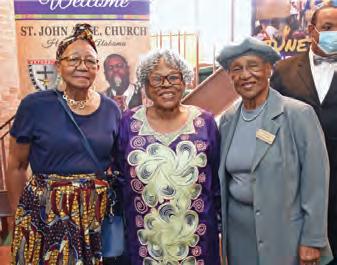
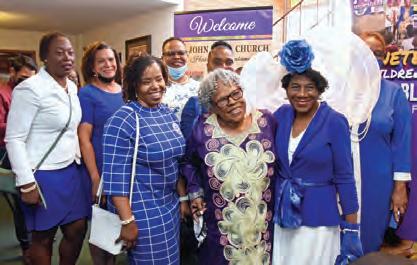
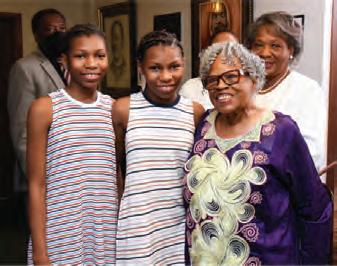
6 | PAGE The Christian Recorder THECHRISTIANRECORDER.COM NOVEMBER 2022
On Preaching and the Call to Ministry
Rev. Jason D. Thompson, Ph.D., Contributing Writer
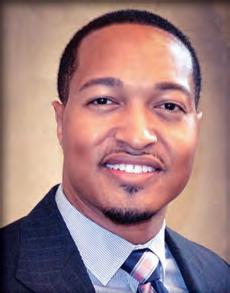
Sermons incite emotions. They arouse, encourage, and even inspire. Sermons stimulate, entertain, and often excite us. If we are honest, sometimes sermons bore us! But, more than anything, sermons should challenge, disturb, and dare us to do something different and be better than before.
In an email exchange, Bishop Adam J. Richardson offered the following thoughts about the distinctions between style and substance in preaching: (1) The most effective sermons can have both style and substance; (2) Most preachers ascribe to the old adage that “good meat makes its own gravy”; (3) Whooping is not a requirement, but fervor always has been and still is. An essential question most listeners ask of a preacher while listening to a sermon is this: “Do YOU believe what YOU just said”; (4) In terms of preaching substance, a key to effectiveness is to work at being reflective, being truthful to the text, and demonstrating in a creative way how the ancient text connects to today’s current issues in meaningful ways. (5) In terms of preaching style, it is important to work at being oneself. Of course, it often can take individuals some time to figure out who that is. But doing so is the only way to be truly authentic.
Recently, I thought more earnestly about preaching and the call to ministry when, at the invitation of Bishop Clement W. Fugh, I traveled to Arizona to preach the ordination sermon for the 2022 Desert Mountain Annual Conference. In my preparations, H. Richard Niebuhr’s explanation of how God’s call manifests in one’s life came to mind. Niebuhr describes 1) “The call to be a Christian,” or the call to discipleship; 2) “The secret call,” which he describes as “that inner persuasion…to take up the work of the ministry”; 3) “The providential call, which is that invitation and command to assume the work of the ministry”; and 4), “The ecclesiastical call…the summons and invitation extended by some community or institution of the church to engage in the work of the ministry” (H. Richard Niebuhr, The Purpose of the Church and Its Ministry, p. 64). It would be hard to imagine any preacher whose journey has not considered Niebuhr’s framework. However, it would be a mistake to believe that God’s call is limited to clergy only. On the contrary, God calls every Christian—lay and clergy—to live in response to God’s call, to live a life of radical obedience and submission to God’s call and will.
In the November 2021 The Christian Recorder, I highlighted two surprising and stunning truths about God’s call. Truth #1: God never calls volunteers. No one ever simply “signed up” for discipleship. Rather, we were summoned, sent for, subpoenaed perhaps. That truth gives new meaning to God’s call: We did not choose God; God chose us. Truth #2: Our unworthiness, unpreparedness, and unreadiness are no deterrent to God’s call for us. God calls us, fully aware that we are quite ordinary, not good enough, not strong enough, and not pure enough for the tasks we are assigned – and then God calls us anyway!
The prophet Jeremiah is an example of a reluctance to answer God’s call. Jeremiah was concerned about his ABILITY: “Behold, I do not know how to speak” (v. 6a); his AGE: “Because I
The
Editor Thomas Defends Ph.D. Dissertation
On October 4, 2022, Editor Thomas successfully defended his dissertation from the University of Chicago entitled, “Black Politics in Peru and Ecuador from 1980-2016: Social Movements and Government Response.” The dissertation committee was
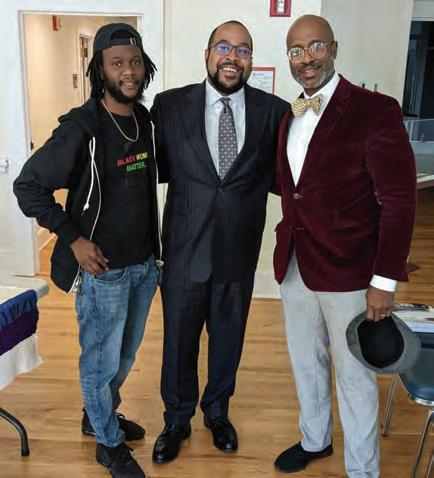
This dissertation answers the following questions:

1) How did black movements in Peru and Ecuador emerge?
2) How have they impacted the “political landscape” of their states? Investigating and theorizing the origins of the groups reveals the underlying grievances and narratives of these movements that shaped their interaction with their states. While the movements have succeeded in challenging the invisibility of Afro descendants by their states, the broader impacts of the movements on the state (i.e., bureaucracy, electoral participation, legal regime) remain to be analyzed.
Editor Thomas was joined at the dissertation defense by the Rev. Eric S.C. Manning (pictured right), pastor of Mother Emanuel, as well as a host of well-wishers from across the connection virtually. The defense was held at the Avery Center on the campus of the College of Charleston where Editor Thomas is an assistant professor in the department of political science.
Editor Thomas is the second editor of the paper to hold a Ph.D. Bishop Richard Robert Wright, editor of The Christian Recorder from 19081936, obtained his Ph.D. from the University of

am a youth” (v. 6b); and there is an unexpressed concern which God anticipates regarding Jeremiah’s ACCEPTANCE, to which God replies, “Do not be afraid of them, for I am with you to deliver you” (v. 8). One reason Jeremiah’s call proves so inspiring is that it turns out that our abilities, achievements, or aptitude do not qualify us to answer God’s call. On the flip side, our anxieties, disobedience, fears, and inadequacies don’t disqualify us. We recognize this because God informed Jeremiah, “Before I formed you in the womb, I knew you, and before you were born, I consecrated you; I appointed you a prophet to the nations” (Jeremiah 1:5). Similarly, God had already decided to select us before any of us could claim the merit or proclaim any selfaggrandizing proof.
How often, when faced with the prospect of God’s call, do we become like Jeremiah and offer God a list full of excuses? The interesting thing about excuses is that our meticulously and carefully cultivated reasons why God shouldn’t use us actually might be true! We ARE unqualified, untrained, and unprepared to assume fully the tasks God assigns. But the beauty in God’s calling of our human limitations is answered through God’s response to Jeremiah — “Do not be afraid of them, for I am with you to deliver you, says the Lord” (Jer 1:8).
Pennsylvania in 1911 while serving as editor of the periodical.
The commencement exercises for the University of Chicago will be on June 3, 2023. ❏ ❏ ❏
THECHRISTIANRECORDER.COM The Christian Recorder PAGE | 7 NOVEMBER 2022
Rev. Jason Thompson is a member of the 5th Episcopal District and has pastored congregations in North Carolina, Arizona, and Kansas. He is the interim director of Music Education and a visiting assistant professor at New York University’s Steinhardt School of Culture, Education, and Human Development.
Michael Dawson (chair), Michael Albertus, Tianna Paschel, and Ollie Johnson.
The United Methodist Church Elects Diverse Class of Bishops
United Methodist Insight Staff
The final tally of new bishops for The United Methodist Church showed that delegates were committed to electing the most diverse class of Episcopal leaders in the denomination’s history – including the Western Jurisdiction’s election of a black, openly gay clergyman in a same-gender marriage.

The election of 13 bishops – three each in four of five U.S. jurisdictions and one in a region caught in an electoral impasse – was seen as a sign of the future for the 12 million member global denomination now being wracked by hundreds of traditionalist churches’ departure.
Observers noted that the 2022 bishops’ elections were both historic in breaking barriers and a continued echo of U.S. rebellion against draconian bans on LGBTQ clergy and same-sex marriage enacted by a special 2019 session of the
General Conference, the UMC’s top legislative body. In 2019, nearly three-quarters of U.S. annual (regional) conferences elected centrist and progressive delegates who would have the power to repeal the tightened bans and take the UMC in a more inclusive direction. Until now, their efforts have been thwarted by three General Conference postponements caused by the coronavirus pandemic, but the spirit of resistance fueled not only this year’s bishops’ elections but resolutions committing the jurisdictions to move away from cultural and institutional exclusion.
Western broke tradition in 1984 when it elected Bishop Leontine Kelly as the denomination’s first black female bishop after her candidacy was rejected by the Southeastern Jurisdiction. Western broke rules again in 2016 when it elected Bishop Karen Oliveto, a married lesbian. Bishop Oliveto’s election touched off a firestorm of controversy, including a complaint before the Judicial Council challenging her consecration. This year’s election of Bishop Cedrick Bridgeforth, the openly gay married clergyman who has been assigned to the Greater Northwest Area, may well face similar challenges.
The Western Jurisdiction’s tradition of breaking barriers – which many United Methodists view not as justice for oppressed minorities but as law-breaking – is drawing expected criticism in social media. At news of Bishop Bridgeforth’s election, an Insight reader commented: “The UMC leadership are so arrogant they actually think the majority of their members agree with violating the BOD (Book of Discipline) –
Western Jurisdiction.
five
UMC’s
and those who don’t are expendable. They are so arrogant that they cannot look at the other denominations who have traveled this path and are now turning more people away from their churches than they are bringing in. They are so arrogant that they cannot even distinguish between socio-political activism and winning souls for Christ.”
Ironically despite its efforts, Western joined Southeastern in facing allegations of racism in their electoral processes. Southeastern bishops pledged to set up a committee to investigate the allegations, while Western delegates posed several changes to their rules and organization intended to increase racial and ethnic representation.
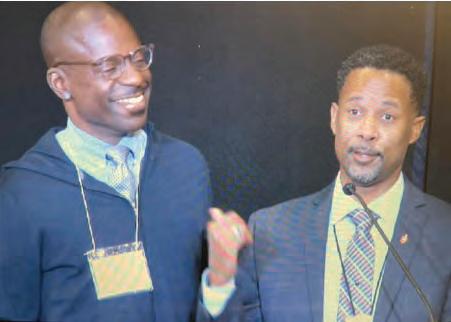
Despite controversy, the 2022 bishops’ elections reflect the greatest diversity
World Food Day and the Mutual and Honorable Life of Love
Rev. Dr. Angelique Walker-Smith

“Love one another with mutual affection; outdo one another in showing honor.” Romans 12:10 (NRSVU)

One day in 1975, the songwriter Kurt Kaiser quickly composed “Oh How He Loves You and Me”:
Oh, how he loves you and me.
He gave his life, what more could he give; Oh, how he loves you, Oh, how he loves me,
Oh, how he loves you and me.
Reflecting on the song later, Kaiser said, “Through the years, I have been in the habit of keeping my ears tuned to things that people say, a phrase that may give me an idea for a song. One day, I came across this line, Oh, how he loves you and me, and I wrote it down.”
God’s love for you and me comes into focus on World Food Day, October 16. That day is an invitation to engage in advocacy actions that deepen our displays of “loving one another with mutual affection” and to “outdo one
another in showing honor.”
What would it look like if we heard more phrases of love from and to strangers similar to the phrases Kurt Kaiser heard in 1975 in ordinary conversation? What would it look like if we saw more actions and commitments demonstrating the phrase? Love is intended not only to be demonstrated in our adoration and worship of God and those familiar to us but also in the living of our mutual honor of those strangers to us.
Honor means to hold someone or something in high esteem. Another definition of honor is to meet the terms of a contract. Both definitions come together when we think about our divine calling. Therefore, people of faith are invited to live in honorable and respectful covenantal relationships with God and our neighbors.
World Food Day invites us to do this as we advocate for the end of the current food crisis fueled by conflicts, climate change, historic inequities, and discrimination. In addition, the food crisis disproportionately impacts some communities more than others. In sum, this crisis exposes our human and sacred imbalance of not living up to the invitation to honor one another.
8 | PAGE The Christian Recorder THECHRISTIANRECORDER.COM NOVEMBER 2022
ECUMENICAL NEWS
...continued
...continued
on p9
on p9
Bishop Carlo A. Rapanut, the first Filipino American elected a bishop in a U.S. jurisdiction, acknowledges supporters following his election in the Western Jurisdiction. (Western Jurisdiction Photo)
Newly elected Bishop Cedrick Bridgeforth thanks his spouse, Christopher Hucks-Ortiz, after his election in the
Centrist and progressive delegates in all
U.S. jurisdictions elected the most diverse class of bishops in the
history. (Photo Courtesy of Izzy Alvaran / Facebook)
...From The United p8
among Episcopal leaders that the UMC has ever seen. Several “firsts” were marked in the elections of:
• Bishop Carlo A. Rapanut, the first Filipino American bishop elected in a U.S. jurisdiction, who was supported in his candidacy by members of his far-flung family, some of whom flew to Salt Lake City, Utah, from Australia;
• Bishop Dee Williamston, a distinguished black clergywoman from Great Plains Conference who became the first African American female pastor elected in the South Central Jurisdiction;
• Bishop David Wilson, the first Native American bishop in the UMC, elected by South Central delegates;
• Bishop Héctor Burgos, the first Hispanic bishop in the Northeastern Jurisdiction;
• More female bishops than any previous class, with seven clergywomen out of the 13 elected bishops.

Be sure to read where all U.S. bishops have been assigned to know who your Episcopal leader will be starting Jan. 1. And don’t forget this early article on the first elections: “Jurisdictions Elect Centrist, Racial-Ethnic Bishops on Early Ballots.” ❏ ❏ ❏
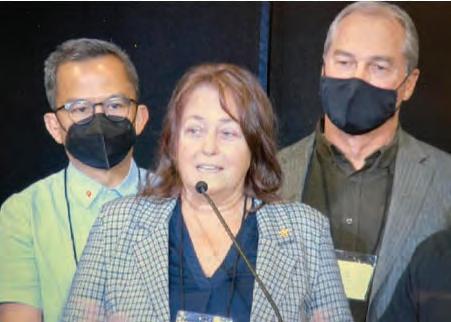
Historic Mount Vernon AME Church Receives Preservation Grant
Jason Jones, jjones@palestineherald.com
The Mount Vernon African Methodist Episcopal Church Restoration Project received word recently that the board of directors of Preservation Texas had voted to approve a $75,000 matching funds grant to be used for structural repairs and a new roof for the historic building.
The Mt. Vernon AME Church Project Restoration Administrator Tabitha Enge was more than excited over the news.
“I am so excited,” Enge said. “This grant is absolutely going to save this building.”
Organized by freedmen in the 1870s as a church and school, Mount Vernon AME is the third oldest congregation of its kind in Texas and the city’s oldest African American church. Though the building closed in 2014, Mount Vernon still has a congregation of roughly 300 members.
Enge has been the driving force behind the restoration project for the historic church for the past eight years. While the project is massive in scale, Enge is deeply and personally attached to the effort.
“I wake up project restoration and I go to sleep project restoration,” Enge said. “It means so much to the community. There is so much that needs to be done, but every project moves it closer to being here for another 150 years.”
When Enge started working on the project, there was enough money in the church fund to erect scaffolding in the church’s interior in 2015, which bought enough time to raise funds and apply for grants to move it to the next phase of restoration.
“Jacob Morris, who was Palestine’s preservation officer at the time, gave me information on structural engineers,” said Enge. “That’s when Mark Thacker came to Palestine. He saw the passion and the value in the project and he has been a part of the process ever since.”
Thacker, an architect from Lindale, completed a preservation planning book in 2021 which facilitated grant applications for stabilizing the structure, leading to this week’s good news.
Being named one of the state’s “most endangered places” in 2015 by Preservation Texas brought statewide and national attention to the project, facilitating a portion of the restoration effort. Grants awarded in the past have gone toward restoration of the tower facades on the front of the building, which prevented further roof and structural damage. After the completion of Thacker’s preservation master plan, the project entered into phase one, which saw floor and foundation repair and demolition in preparation for phase two. The Preservation Texas grant will finance that phase.
“Phase two will be repairs to the roof and wall structure,” Enge said. “When that part is completed, the rest will be cosmetic, but it will mean that Mt. Vernon will be standing for a very long time.”
Mary Raum, tourism marketing manager at Visit Palestine, Texas, expressed her excitement for the milestone step for the project.
“We are so proud of Tabitha Enge and the Mt. Vernon AME Church restoration team,” Raum said. “Over the past two years, the city of Palestine tourism advisory board and city council have invested $30,000 for the restoration and preservation of this highly significant African American historic site in Palestine. Funds were allocated over two years through the hotel occupancy tax grant application process and have been used to help fund the stabilization of the structure and prepare it for the next phase of the project.”
“Next year will be the 150th birthday of this building,” Enge said. “I would love to see people be able to come inside and see the progress and to feel the love and history here. Deep down, it means something to so many people.”
For questions about Project Restoration, call 903948-9648 or email mtvernon14@gmail.com. Mail donations to P.O. Box 2924, Palestine, Texas, 75802, ATTN: Project Restoration. ❏ ❏ ❏
...From World Food p8
Let us pray, reflect, and act with mutual love and honor for each other so that all can be fed with dignity. The following prayer from the Rev. Lionel Louw from South Africa in Bread’s Pan African Devotional invites us to do this as we honor World Food Day.
“O God our help in ages past, we bring ourselves and our communities before you this day. Land dispossession and the inequitable distribution of
nutritious food from the land disempower your people. And yet you call us to receive Jesus Christ into our lives. Today, we pray that the Holy Spirit may guide us beyond charity and into acts of justice and restitution and empower us to remain faithful to him who has promised to accomplish abundantly far more than we can ask or imagine. To him be glory in the church and in Christ Jesus to all generations, forever and ever, Amen and Ashe.”
THECHRISTIANRECORDER.COM The Christian Recorder PAGE | 9 NOVEMBER 2022
Angelique Walker-Smith is a senior associate for Pan-African and Orthodox Church engagement at Bread for the World.
Bishop Dottie Escobedo-Frank thanks delegates for her election in the Western Jurisdiction. Behind her are her spouse, Jim (at right), and Bishop Carlo A. Rapanut, the first Filipino American bishop elected in a U.S. jurisdiction. (Photo Courtesy of Izzy Alvaran / Facebook)


10 | PAGE The Christian Recorder THECHRISTIANRECORDER.COM CONNECTIONAL NEWS NOVEMBER 2022

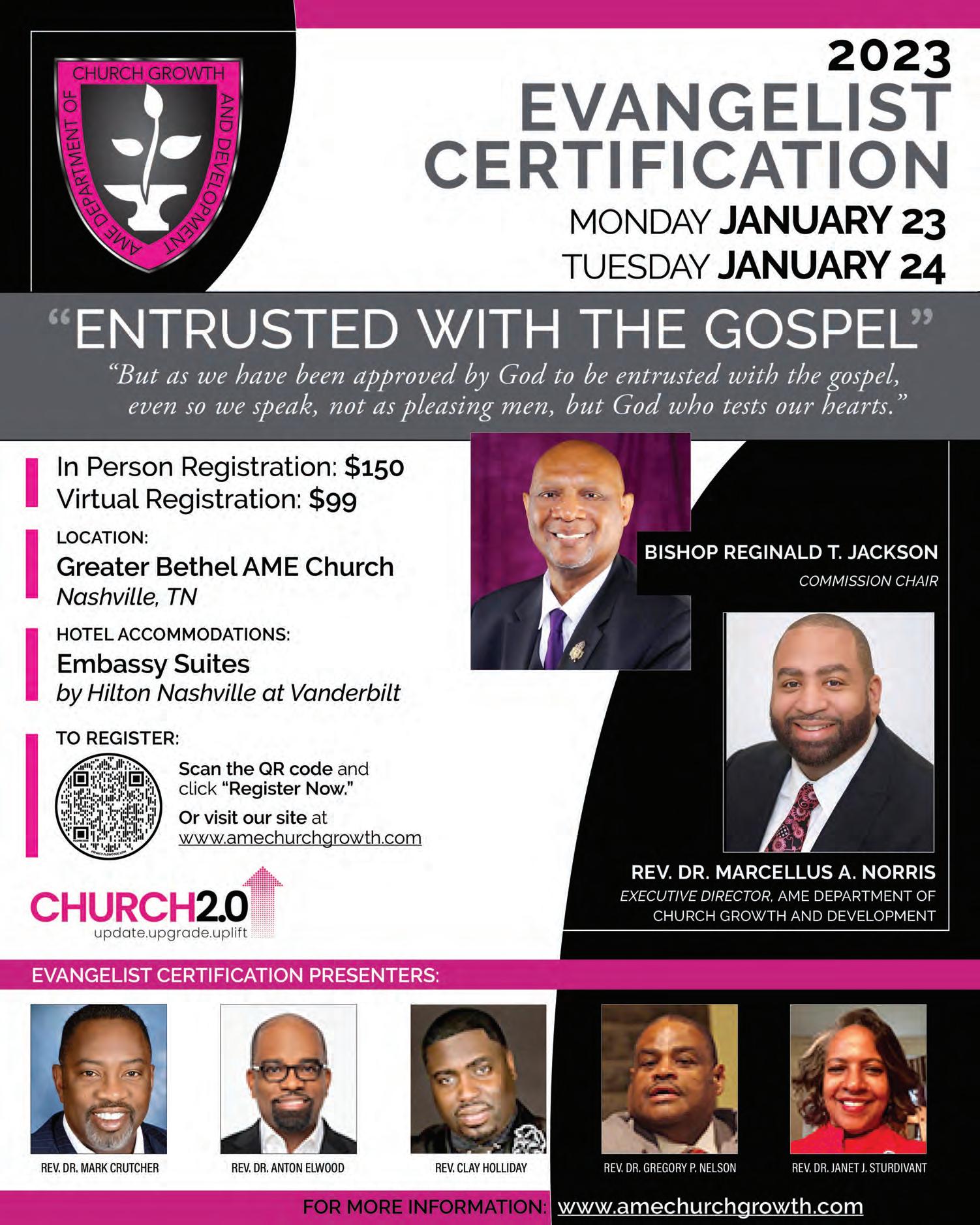
CONNECTIONALNEWS THECHRISTIANRECORDER.COM The Christian Recorder PAGE | 11 NOVEMBER 2022

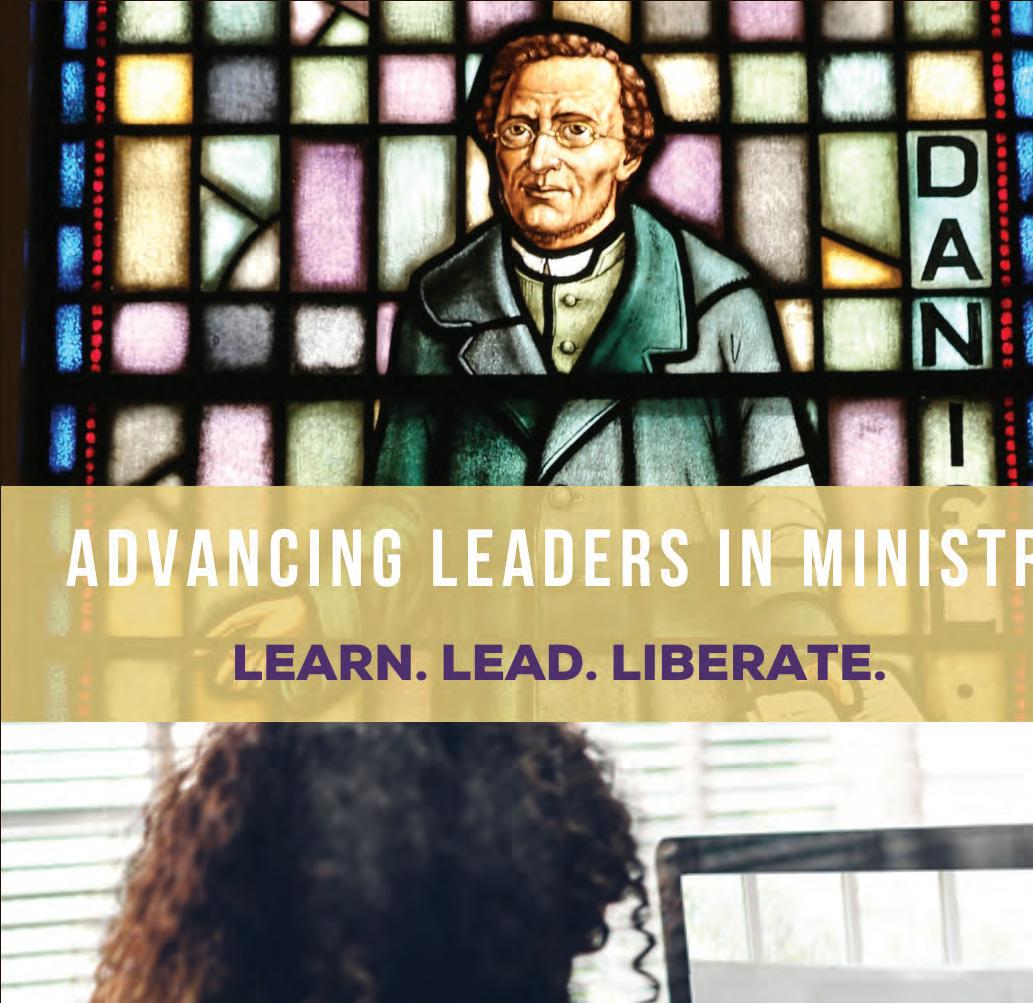

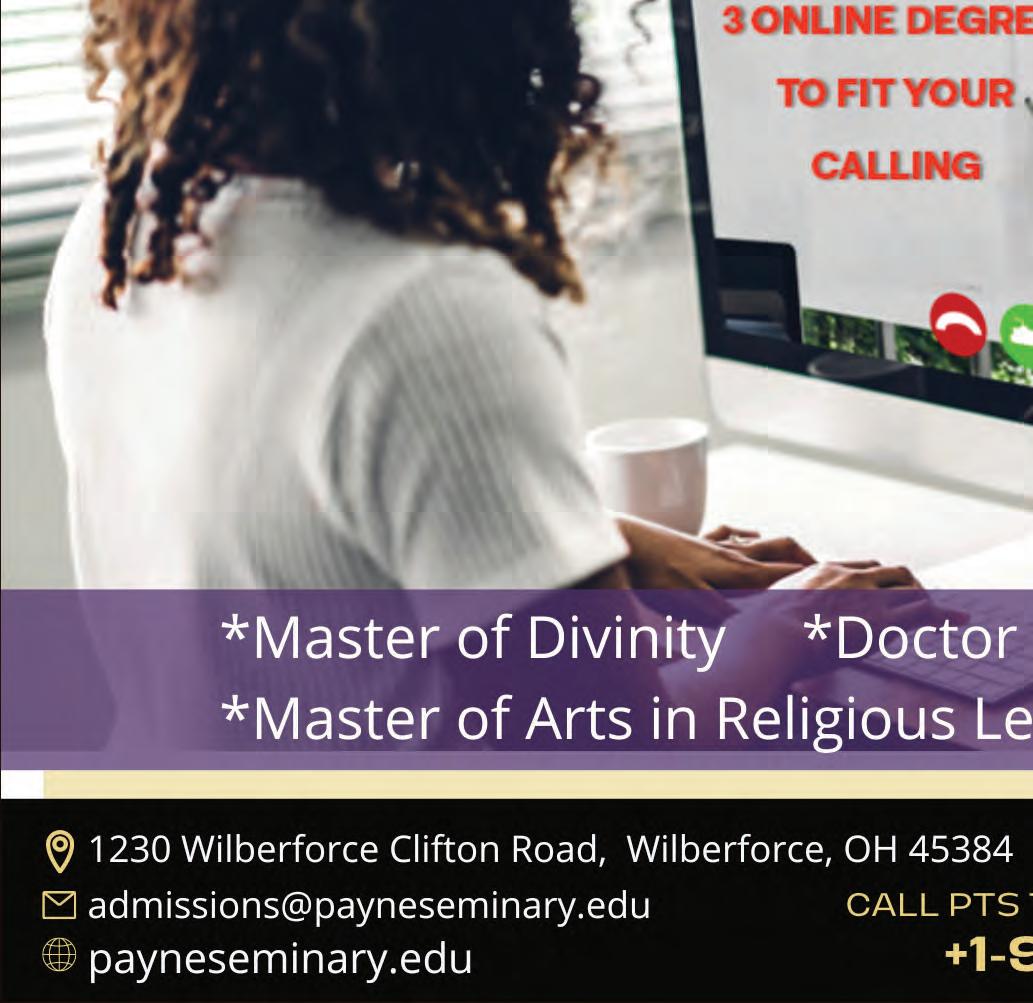
12 | PAGE The Christian Recorder THECHRISTIANRECORDER.COM CONNECTIONAL NEWS NOVEMBER 2022
Finding Freedom: Rev. Dr. Nikia S. Robert and the Abolitionist Sanctuary
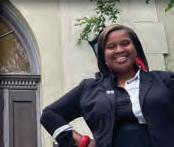 Kiratiana E. Freelon, Columnist
Kiratiana E. Freelon, Columnist
On a late spring Sunday in May, the Rev. Dr. Nikia S. Robert, an ordained elder in the African Methodist Episcopal Church, swayed to “All I Need Is You”— you being the Lord, of course — as she walked to a transparent podium in the Word of Encouragement Church.
“How many of you need a word?” asked the ordained minister, theologian, and social entrepreneur. The southern California congregation where she’s guest-pastoring, 90 percent of them black women, responded with well-timed “Yesses.”
She shook her bob, closed her eyes, and proclaimed, “Somebody needs a breakthrough. Somebody needs deliverance. Somebody needs peace.”
However, after reading Luke 1:46-55 and a short prayer, she revealed the sermon’s timely title: “Plan B: The Choice Is Yours.” Plan B is the over-thecounter pill that helps prevent pregnancies within 72 hours of unprotected sex. A month after the sermon, the U.S. Supreme Court voted to restrict the federal right to abortion, overturning the landmark case Roe vs. Wade.
Robert wasted no time in her sermon asserting her stance on reproductive choice from the pulpit.
“When black women are uniquely disadvantaged by racial, gender, and economic inequalities that make it nearly impossible to raise our children and survive, we need autonomy over our bodies to exercise agency and decide what is best for ourselves and our families,” Robert said in front of a congregation that included two daughters, a son, and her husband.
“From now on, all generations will call me blessed; for he who is mighty has done great things for me, and holy is his name,” said Mary in her Magnificat in Luke 48-50.
For Robert, Mary should be honored as an example who used her agency and exercised reproductive choice. She highlighted Mary’s thoughtfulness and independence.
Thus, Robert interpreted Jesus as Mary’s plan B.

“Her Plan A was likely to wait till she was married, but God had a Plan B, and that Plan B was Jesus,” declared Robert.
The Personal Is Political (and Theological)
On that day, Robert took her first step in introducing her young nonprofit to churches by conducting her first-ever “Abolitionist Sanctuary” worship service.
Through Mary’s story, Robert took a controversial stance on a divisive social justice issue grossly affecting black women. She ended the service by introducing the church congregation to social-justice organizations that they could immediately assist.
Robert, 42, once thought she would become a pastor of an AME Church but now understands that she has a broader calling—building a faithbased abolitionist movement that centers on black women. Her journey to this calling has been personal, social, and academic. At the end of 2020, when she defended her dissertation, “Breaking the Law When the Law Breaks Us: A Womanist TheoEthical Approach to Public Policy and Criminal

Justice Advocacy for the Black Church,” her advisors challenged her to bring her thesis to life. The result is Abolitionist Sanctuary.
Abolitionist Sanctuary wants to fight the moral crisis of mass incarceration and the criminalization of impoverished Black motherhood. Theological theories like Black Liberation and Womanism underpin the nonprofit, and focus on the abolitionism of the Black Lives Matter Movement is a significant influence. To top it off, the Abolitionist Sanctuary board is stacked with influential theologists, religious leaders, and activists like Willie Dwayne Francois III, a minister and author; Candice Benbow, a multigenre theologian who works at the intersection of beauty, faith, and feminism; and Obery M. Hendricks, a biblical scholar who specializes in the intersection of religion and politics.
Personal experience undergirds Robert’s pivot to become a pastor-organizer who will train faith communities to become abolitionists. Despite suffering from the forced shame of black single parenthood, she had a mother who used her ingenuity to protect and provide for her family. She grew up in the AME Church, known for its abolitionist work against slavery, but witnessed her brother shipped off to prison by the time he turned 22.
“She’s like the woman king in the movies,” said Stephen Green, pastor of Harlem’s St. Luke AME Church and a member of the Abolitionist Sanctuary board. “She’s a warrior, a freedom fighter, and someone who has been educated in heart and mind but who has the passion in her soul. I see her as the Harriet Tubman of our times.”
Survival Shouldn’t Be a Crime

Robert’s mother, Carol, raised her and her older brother as a single parent in tumultuous 1980s and ’90s Harlem. The advent of crack cocaine ramped up neighborhood violence. Prolonged government disinvestment had left its streets with empty lots and abandoned buildings. Even though it was culturally rich, Harlem became a poster child for everything deemed wrong with the “inner city”—violence, teen pregnancy, drug use, single parenthood, and more. The media and government vilified black mothers across the United States as “welfare queens” who gave birth to “crack babies,” whose dominant narratives framed them as drains on public aid and dangers to society.
“For us in a black community, black women are salvation. But to the larger society, they’re criminalized,” Robert said. “They’re seen as criminals, and they’re deviant. They’re immoral.”
Carol both reflected and defied her surroundings. Despite birthing her son at 15, she became the first person in her family to graduate from college.
She refused to apply for welfare, and like many African American women looking for community, support, and stability, Robert’s mother turned to the church. So at least two times a week, Robert and her mother traveled from 110th to 132nd street to First AME Bethel for Bible Study, church service, or other church events, often returning home late at night by bus. There, her mother found encouragement from the church mothers, who also treated Robert like a daughter.
Yet, the church, and the wider society, still required Robert’s mother to hew to certain norms — or pretend to at least. So the answering machine’s “We’re not home” implied that she had a husband.
“It was this sense of performing, whether it was in the church, whether it was in our community, or whether it was in white spaces going downtown,” said Robert. “But I feel like, as a single black mom, she felt that she had to perform a certain type of respectability to be accepted.”
Robert said that the church abounds with “oppressive teachings of sin that somehow women are sinful.” At the same time, the church provides a beloved community of women who poured into Robert. They pushed crumpled-up dollar bills into her hand. They gave her much-needed hand-medown clothes. Robert even received a free piano from a church member so she could take lessons. The church women also asked Robert to lead activities and often speak in church. They saw something in her that she did not see in herself.
Growing up in a household where money was always sparse spurred Robert to pursue a path of guaranteed capitalistic success. After graduating from Fairfield University with a degree in information systems, she joined a “Big 5” accounting firm. First, she worked on Wall Street, down the street from her mother’s work at the Social Security Administration. Then, she applied to seminaries across the country and selected Union Theological Seminary.
“It just felt like the other thing was me chasing my tail, and then it felt like I was saying yes to God,” said Robert as she sat in her office at Claremont Colleges in Pasadena, California.
Personal photos of people she admires cover the wall above her desk. She has photos with Angela Davis, Michelle Alexander, Patrice Cullos, and the Rev. Dr. James Cone. The last two photos feature Robert, her husband and three kids at the beach, and her at a Black Lives Matter protest on the steps of Pasadena City Hall.
THECHRISTIANRECORDER.COM The Christian Recorder PAGE | 13 NOVEMBER 2022
...continued on p14
“It felt like I wanted to move from a life of success to a life of success and significance, and it gave me greater meaning.”
Black Liberation Theology + Abolition + Womanism

At Union Theological Seminary, she became a disciple of the late Rev. Dr. James Hall Cone, the founder of Black Liberation Theology. Cone, an ordained minister in the AME Church, linked Jesus’s crucifixion to the daily oppression black people face, his thesis in his seminal book, Black Theology and Black Power Robert followed this deep dive into Black Liberation Theology with a focus on the mass incarceration of black people, a personal matter for her.
When she was 12, she received her first letter from her brother, who had gotten caught up in the War on Drugs. Robert even grew up in the same building as two of the Central Park Five, a group of young black men who were wrongfully imprisoned for raping a white woman in 1989.
“I’ve always been concerned about freedom, and I’ve always been concerned about getting rid of the incarceration state because I’ve seen what it did to my community and my family,” Robert said.
According to Robert, Black Liberation Theology lacks a gender analysis and an emphasis on women’s religious experience and spirituality. For most of her academic career, Robert avoided identifying herself as a womanist. Her master’s focused on the theological connection with mass incarceration. It was not until her Ph.D. program chair, Dr. Monica A. Coleman, pushed her to incorporate gender analysis in her thesis that she embraced it. Womanism, a term first coined by Alice Walker, centers on the experience of black women to produce and validate knowledge. Delores Williams, a black religious theologian, transformed it into theology. Instead of focusing on oppression through the experience of Jesus and the Israelites (as Black Liberation Theology often does), Womanism focuses on the experience of Hagar, an enslaved Egyptian who belonged to Sarah, the wife of Abraham. Hagar even bore a child for Abraham because Sarah was barren. As an enslaved African, homeless exile, and surrogate mother, Hagar provides an image of survival and defiance.
In recent years, “abolition” has re-emerged as the focus for the liberation of black people. Historically, abolition in the United States addressed the abolishment of slavery, but its modern definition refers to abolishing all structures that are related to imprisonment and policing. Instead, people are encouraged to take accountability, which often includes, according to abolitionist Mariame Kaba, self-reflection, apology, repair, and changed behavior. Within a community, this includes restoring relationships and rebuilding more just and equitable systems for communal flourishing.
Robert says her first introduction to abolition was through the AME Church, where she spent most of her time outside school as a youth. When Richard Allen refused to be forced to sit at the back of the Methodist Church, he left to found the African Methodist Episcopal Church. Currently, Dr. Robert serves as on the ministerial staff of First AME Church in Pasadena, California. “So, the Black Church, particularly the AME Church, began as an abolitionist movement because we were breaking away from the white church that told us we couldn’t pray at the same altar as them,” Robert said. “We couldn’t worship in the same space as them. And even if you were to predate the church as an institution and go to the hush harbors, right? Where slaves would go at night when the master would sleep in the fields to hold church and plot freedom, right? That’s abolition. And that’s directly at the intersection of faith and abolition. Black people have always believed in a God who liberates and a God who is on the side of the oppressed.”
Robert strives to integrate abolitionism into all areas of her—life, activism, university, and even home. So if her three children disobey her or create harm in her home, she doesn’t send them to their room or take away their electronics. Instead, she finds other ways that hold them accountable and build character. When her son hurled an insult at her daughter, she told him to show his sister acts of love.
She also doesn’t use punitive measures in her university classes, instead focusing on creating a nurturing and caring academic environment. Last spring, she taught a course entitled, “Theology, Morality and Public Policy: Black Motherhood in the U.S. Carceral State.”
In one of the last classes before the 2021-2022 school year’s end, students strolled into her classroom leisurely as she stood at the podium. It was a hectic week of final projects and final exams. Once everyone was in their seat, she started an opening circle by asking each person to say a word that encouraged them to get through the week. Responses included “calm,” “home,” “Will Smith’s ‘Summertime’,” “perseverance,” and “peace.”
Robert had assigned her students a group presentation that highlighted abolitionist movements and organizations. So she lowered the lights for their presentation. One group explained the goals of Black Mama’s Bailout, an organization that dedicates its resources to bail out as many black “mamas” and caregivers from jails and migrant detention centers across the country. A second group described community asset mapping, in which locals document the area’s existing resources. The day’s final group produced a podcast highlighting SisterReach, a Memphis-based reproductive justice organization that uses faith-based education to connect with its religious audience.
Desiree Rawls, a graduating senior and member of the final group, wrote her senior thesis on how black girls process grief. She says the course taught her how black women use religion as a balm, but could also be hurt by it.
“Having a professor who is a reverend and who acknowledges the harms that are sometimes perpetuated in the church helps me in my personal process of healing and religion,” said Rawls. “She’s a very understanding professor, and she knows her research and how to explain things so that we can understand it. I feel comfortable talking with her after class.”
Robert ended the class with a simple centering exercise in which she asked her students to close their eyes and breath.
“Peace be with you,” Robert said.
From Condemnatory to Courageous to Abolition Sanctuary
Robert does not just want to bring “Abolitionist Sanctuary” services to churches; she wants to help them transform themselves into courageous churches using the Abolitionist Sanctuary philosophy. The organization has developed a tool, “Four Churches,” that assesses a church into four types— condemnatory, complicit, changed, and courageous. For Robert, the courageous church is not punitive in its biblical teaching. Instead, it is vocal and speaks out about social injustice—just like she did in her sermon at the Word of Encouragement Church. On the other hand, condemnatory churches insist on messages of blame, shame, and judgment.
“It could be teachings that are sacrifice and rooted in violence and the cross, teachings that are harmful, that make people feel like God is judging them, that people are judging them, that undermines their agency, their humanity, their freedom, autonomy, that make people feel like they’re not made in the image of God.”
She characterizes complicit churches as “stagnant in their teachings and practices. They’re silent on issues of injustice. Maybe they’re not aware of how they’re participating in these injustices,” Robert said.
Then there is the changed church, which every church should strive to be, Robert says. The changed church is committed to repairing harms, restoring relationships, and rebuilding just and equitable systems. Its teachings and practices affirm the human dignity of poor black mothers of women. It has emancipatory religious values that are connected to issues in the community through public policy work, bailout funds, and expungement seminars.
“We envision building a faith-based abolitionist movement that consists of a coalition of black-serving churches with amassed political power to collectively organize against the moral crisis of mass incarceration and the criminalization of impoverished black motherhood,” Robert said.
The work of Abolitionist Sanctuary will not stop at assessing the churches. Robert has developed an online accreditation tool to help churches, organizations, and communities to become officially credentialed as an “Abolitionist Sanctuary.”
As Robert is at the beginning of her Abolitionist Sanctuary journey, no churches or communities have yet to apply to become Abolitionist SanctuaryCertified. However, she hopes the denomination that provided community to her and her mother—the AME Church—supports her.
14 | PAGE The Christian Recorder THECHRISTIANRECORDER.COM NOVEMBER 2022
❏ ❏ ❏ ...From Finding Freedom p13
Philadelphia-Area Pastor Is Recognized for Her Work in the Community
 Sister Angelena Spears, Philadelphia Conference Reporter
Sister Angelena Spears, Philadelphia Conference Reporter

It’s hard to believe that the Rev. Carolyn Cavaness is just 39 years old – considering all that she has accomplished in her ministry.
For the past eight years she has served as the pastor of Bethel AME Church in Ardmore, PA – and her work to push ministry beyond the walls of the church has not gone unnoticed, as she has been spotlighted in multiple publications throughout the region.

Most recently, this summer, First Read (a daily newsletter for PA) named her to its Pennsylvania City and State Forty Under 40 list and profiled her as one of 40 trendsetters who stand out for their leadership and “common drive to improve fellow Pennsylvanians’ lives through their words and deeds.”
Her outreach work has given her the label of “community activist,” and she is often credited with building bridges that connect people across diverse backgrounds.


“People are looking to the faith community to be the moral compass and to stand up,” says Cavaness. “We can’t do our faith for ninety minutes on Sunday morning and leave it there. It
has to breathe through.”

One achievement that Cavaness is particularly proud of is the establishment of South Ardmore’s first community garden. The goal was to help alleviate hunger in the community and at the same time promote nutrition access. Today the church manages over 20 gardens and helps tend several dozen more. As the gardens have continued to
flourish, over 1,000 pounds of produce have been donated in each of the past two years to the Ardmore Food Pantry and other food pantries and networks in the area.
“This [feeding others] is part of our mission,” says Cavaness. “It is what Jesus calls us to do: feed those who are hungry and give drink to those who are thirsty. People are trying to make it from one day to the next and the church must ask, ‘How do we show who Jesus is?’”
The Bethel Ardmore Church also offers a free after school program and the past few summers it has worked alongside interfaith ...continued on p16
THECHRISTIANRECORDER.COM The Christian Recorder PAGE | 15 NOVEMBER 2022
Ohio South Ohio Conference Lay Organization Living a Global Witness Ministry

That Transforms, Transcends, and Liberates: We Acknowledge Third Episcopal District Lay Legendary Leadership
By Jacqueline Johnson, Marvin Harris, and Adrienne Morris, 3rd Episcopal District
The spirit of the Lord is upon me, because he has anointed me to proclaim good news to the poor. He has sent me to proclaim liberty to the captives and recovering of sight to the blind, to set at liberty those who are oppressed, to proclaim the year of the Lord’s favor. Luke 4:18-19
The Ohio South Ohio Conference Lay Organization and the Third Episcopal District worshiped at their Annual Lay Night Service during the 192nd Session. The Lay Theme: Living a Global Witness Ministry that Transforms, Transcends, and Liberates, adopted by the Connectional Lay Organization, served as a theme for our program on Friday, September 23, 2022.
Prior to worship, the Ohio South Ohio Lay Organization presented a video production entitled, “Ohio South Ohio Conference Lay Legendary Leadership,” and included African Methodist Episcopal servant leaders, Dr. Yvonne Walker-Taylor, president emeritus, Wilberforce University and first female on Judicial Council, AME Church, who also served as president; Dr. Derek Hill Anderson, president, Connectional RAYAC and Connectional YPD parliamentarian, presently secretary, Judicial Council, AME Church; chairman of the Lay Organization Connectional CLEDC; Mrs. Carolyn WalkerKimbro is the secretary of the Connectional Lay Organization CLEDC; Mr. Arthur Brown, 8th president, Connectional Lay Organization; Dr. Willie C. Glover, 13th president, Connectional Lay Organization; Mrs. Lyndia Mayo, presently financial secretary, Connectional Lay Organization; Dr. Kimberly Gordon-Brooks, member of the General Board, AME Church, Ms. LaDonna Moore Liggins, member of the General Board, AME Church; Mrs. Donna West Blackburn, member of the General Conference Commission; Mrs. Adrienne A. Morris, 6th
colleagues to begin a summer feeding pilot program for neighborhood children.
Furthering the work of community service, the church has offered assistance to over 1,000 persons in accessing the COVID-19 vaccine, and Cavaness says members and partners have put in “numerous hours assisting children with virtual learning and adjusting to this troubling time [during the pandemic].”
Cavaness’ working knowledge of Spanish has been used to reach out to the local Latino community, which has struggled with online learning. “In one of the best school districts in the state, you still have those who are not serviced,” she says.
Her commitment to social justice has also been front and center in her ministry. In the weeks following the shooting death of Michael Brown in Ferguson, MO, in August of 2014, Cavaness dedicated services on a “Save Our Sons” Sunday to
Connectional YPD director and Connectional WMS historiographer-statistician; the Rev. Dr. Mila Cooper, the first Connectional young adult representative, Connectional Lay Organization; the Honorable Mia Wortham Spells, honor graduate, Wilberforce University and currently judge for the Dayton, Ohio Municipal Court; Mrs. Daisy Nelson Brown, Connectional MCAM officer and director of the historic 2004 Third Episcopal District General Conference Choir, served as a master musician. She also served on the Worship and Liturgy Commission. The film highlighted two educational anchors of the AME Church, Wilberforce University and Payne Theological Seminary, both located in the Mother Conference of the Third Episcopal District. Because of their impeccable leadership we pay tribute, honor and acknowledge these outstanding Connectional lay leaders. The video also featured Wayman AME Church, Dayton Ohio, the church of Paul Laurence Dunbar. We pay tribute and acknowledge these outstanding Connectional leaders.
The worship was led by Dr. Derek Hill Anderson and the speaker for the evening was Mrs. Cheryl Hammond Hopewell, First Episcopal District lay president, corresponding secretary for the Connectional Lay Organization, and trustee, Payne Theological Seminary. Mrs. Hammond Hopewell spoke on the theme, “Don’t Look Back,” encouraging attendees to “shake off the past.” Her scriptural reference was Genesis 19:26. Mrs. Cheryl Hammond Hopewell referenced Lot’s wife who turned into apillar of salt for refusing to
call the church to a new commitment to fostering the safety and well-being of young black men.
Months later, when protests flared after the decision not to indict the policemen responsible for the choke hold death of Eric Garner in New York, she invited others in the community to send the message that “Black Lives Matter.”
A fourth-generation AME pastor, Cavaness says the drive to have an impactful ministry is in her DNA. Her pastoral roots trace back to her great-grandfather, the late Rev. Dr. Joseph Slade, who served as the pastor of several Pennsylvania churches and also at the historic St. James AME Church in Newark, NJ.
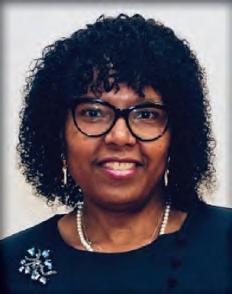
Growing up the daughter of a pastor, Cavaness says she always knew, even as a child, that she wanted to be a preacher. “I wanted to wait until I was an adult,” she says, “but the call was strong.”
She received her license to preach at age 15, and at age 16, she was the youngest in her native New
focus on the future. In addition, she encouraged parishioners to obey God no matter what!
Our inclusive program, the invocation, the scripture readings, and the lay litany featured participatory involvement from our lay leaders, Mr. Michael Goss, Mrs. Norma Jean Dunson, Ms. Debra Tyus, Dr. Kimberly Gordon Brooks, Mr. Randle Moore, and Dr. Derek Anderson.
Our COVID connection bonded us together during this pandemic season. Intercessory prayer calls were led by our devotional teams. The Ohio South Ohio Conference Lay Organization is under the direction of our capable president, Mr. Marvin Harris, who serves us with unity and love.
Errenous E. McCloud, Jr., bishop is the presiding bishop of the Third Episcopal District, and Patricia Russell McCloud, Esq., serves as our Episcopal supervisor.
Jacqueline Johnson is the director of Lay Activities for the Ohio South Ohio Conference Lay Organization. Marvin Harris is president of the Ohio South Ohio Conference Lay Organization.
Adrienne Morris is the program chairperson of the Ohio South Ohio Conference Lay Organization.
Jersey to be admitted to the New Jersey Annual Conference of the AME Church.
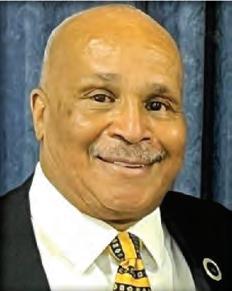
The number of firsts in her career is constantly growing. She is the first female pastor of the Bethel, Ardmore AME Church. She is the first female to serve as the president of the Main Line Black Interdenominational Ministerial Alliance, which represents 12 churches. And next year, in July, she is slated to become the first African American female president of the Ardmore Rotary Club.
She says her church has been incredibly supportive of her community involvement and has helped to push her motto that “we should use all of our God-given gifts to bring the kingdom down,” –which is a mandate in our Lords prayer, when we pray God’s kingdom will be manifested on earth as it is in heaven. ❏ ❏ ❏
16 | PAGE The Christian Recorder THECHRISTIANRECORDER.COM NOVEMBER 2022
...From Philadelphia-Area p15
CONGRATULATORY Listings
*Purple font connotes Episcopal Family; Red font, General Of ficers; and Blue font, Connectional Officers.
OCTOBER 2022
The Son and Daughter-in-Law of the Late Right Reverend Vinton R. Anderson and Retired Episcopal Supervisor Mrs. Vivienne Anderson Were Inducted Into the Hall of Fame
Mr. Jeffrey Anderson, second son of the the late Right Reverend Vinton Randolph Anderson and former Episcopal supervisor, Mrs. Vivienne Anderson, salutes his wife, Mrs. Edie B. Anderson, who was inducted into the National Black Radio Hall of Fame. She made history when she was at W.E.S.L. where she was the 1st D. J. to play a rap record in the U.S.,
“Rappers Delight” by the Sugar Hill Gang. Mr. Jeffrey Anderson, Episcopal PK, was also honored to be inducted into the Don & Heide Wolff Jazz Institute Jazz Hall of Fame. Congratulations to the husband-and-wife team.
NECROLOGY Listings OCTOBER 2022
*Purple font connotes Episcopal Family; Red font, General Of ficers; and Blue font, Connectional Officers.

Brother Arthur Richardson, the beloved husband of the Reverend Rose GoodwaterRichardson, pastor of Allen (Edisto Island) African Methodist Episcopal Church of the Edisto District of the South Carolina Annual Conference of the Seventh Episcopal District of the African Methodist Episcopal Church
The Reverend Kwiyula Sembo of the Twentieth Episcopal District, a beloved husband and father, in ministry for 22 years and throughout his ministry he pastored Kasoba AMEC, Thomas Chapel AMEC, Tukoma AMEC, and Kasisi AMEC and served as secretary for the Karonga Center District for eight years and the Committee on Church Growth and Development in the Malawi North Annual Conference
The Reverend Fred N. Penny, retired itinerant elder of the Illinois Conference-North District, Fourth Episcopal District
The Reverend Lloyd Bourne, a superannuated minister in the Arkansas Annual Conference and following
retirement a member of Bethel AME Church, West Memphis, Arkansas, Twelfth Episcopal District
The Reverend John Henry Holmes,Jr., retired pastor and itinerant elder in the Tyler District of the North Texas Conference, Tenth Episcopal District
Mr. Herbert Charles Richardson, brother of Bishop Adam J. Richardson, presiding prelate, Tenth Episcopal District, senior bishop AMEC, brother-inlaw of Supervisor Connie S. Richardson; husband of Angela Cason Richardson; their son Herbert Cason Richardson, along with their grandchildren; and he was a faithful member of Bethel AME Church, Tallahassee
The Reverend Dr. Jerrolyn S. Eulinberg, Ph.D., an ordained elder in the AME Church; the former director of the Samuel DeWitt Proctor Conference, Incorporated, proudly she identified with Historic Vernon AME Church in Tulsa, OK and Greater Institutional AME Church in Chicago, IL, and she was the mother of Sister Meyon Ward, immediate past
Oklahoma Conference state YPD director of Tulsa, OK, Twelfth Episcopal District
The Reverend Dr. Saint Julian Snider, Sr., a supernumerary elder in the Midlands District of the Central South Carolina Annual Conference of the Seventh Episcopal District, the spouse of Mrs. Gwendolyn L. C. Snider and the brotherin-law of the Reverend Robert Cleckley, superannuated elder, and Mrs. Lula Shaw Cleckley, past president of CONN-MSWAWO+PK’s
The Reverend Archie Theodore Evans, age 67, who had served the last thirtytwo years as pastor of the Rock Creek AME Church in Snow Camp, North Carolina in the Western North Carolina Annual Conference of the Second Episcopal District, a husband, father, and grandfather
The Reverend Joe E. Fletcher,Sr., age 90, retired minister in the Tennessee Annual Conference of the Thirteenth Episcopal District
The Reverend Regina Capers, a local elder in the African Methodist Episcopal Church,
the mother of the Reverend Dr. Barbara Chisolm, pastor of Greater Zion (Awendaw) African Methodist Episcopal Church, Mt. Pleasant District, Palmetto Annual Conference of the Seventh Episcopal District
Sister Bernella Knight Rose, president of the Ninth Episcopal District Lay Organization and a lifelong member of the Ninth Episcopal District of the AME Church
The Reverend Deborah Franklin, an itinerant elder in the Northwest Alabama Annual Conference, the spouse of the Reverend Carson Franklin, Sr. (retired), also of the Northwest Alabama Annual Conference, Ninth Episcopal District
Elder Linda Joyce HatcherDarsaw, the beloved sister of First Lady Velma Barkley and sister-in-love of the Reverend Sterling Barkley, pastor of Greater Tanner AME Church, Quincy, Florida, Eleventh Episcopal District
Condolences to the bereaved are expressed on behalf of Publications Commission chair Bishop David R. Daniels, Jr., president/publisher of the AMEC Publishing House (Sunday School Union) the Rev. Roderick D. Belin, and editor of The Christian Recorder, Dr. John Thomas III.
“Blessed are those who mourn, for they shall be comforted.” Matthew 5:4 (NRSV)
To share or receive information about Connectional clergy family bereavements and congratulations, please contact the AME Church Clergy Family Information Center. Mrs. Ora L. Easley, administrator • 5981 Hitching Post Lane • Nashville, TN 37211 • 615.833.6936 (CFIC Office) • amecfic.org • facebook.com/AMECFIC


THECHRISTIANRECORDER.COM The Christian Recorder PAGE | 17 NOVEMBER 2022
Character and Consistency
Dr. Byron Washington, Columnist
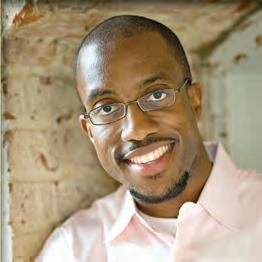
Soon Daniel distinguished himself above the other administrators and satraps because an excellent spirit was in him, and the king planned to appoint him over the whole kingdom. So the administrators and the satraps tried to find grounds for complaint against Daniel in connection with the kingdom. But they could find no grounds for complaint or any corruption, because he was faithful, and no negligence or corruption could be found in him. – Daniel 6:3-4 (NRSVU)
Everyone wants to succeed, whether in church, community, or our professional vocation. To succeed, we must have the knowledge and often the education or experience to function and excel in our specific field. A person may have to attend law school or medical school or obtain various certificates to obtain the requisite knowledge to operate in their particular field. In addition, a person needs to possess “soft skills,” the ability to communicate, high emotional intelligence, and other skills not often seen when reading a resume or a curriculum vitae (CV).
To that end, we should highlight other hidden traits. For example, a doctor with a degree from the best university and great people skills who is a liar and deceptive in his medical practice will eventually find him or herself unemployed, sued, or perhaps even lose their license. Or consider a person who leads a Christian organization with a wealth of experience and education but leads an organization that lacks consistency and is late in delivering its services; this individual will suffer over time.
The traits highlighted in the two scenarios are character and consistency. The two are not often found apart from each other. It is hard for a


person to have character and not have consistency. Conversely, an inconsistent person will likely have character flaws or make questionable decisions due to unreliability. Sadly, most people we have seen fall from grace did so not because they did not have the education or could not lead; no, it was often a lack of character that pulled them down.
As we are approaching the finish line of 2022, and we are all faced with many opportunities, let us all strive to have good character and be consistent. Consistent in our prayer, devotion to God, and in representing him well. Let us make good decisions and not tarnish our reputation, thus harming our ability to excel in our career or area of influence.
Daniel could function in a pagan society and do well because of his consistency before God and because he did his job well. When the other pagan leaders checked his work and looked at all he had done, they realized he had not taken any shortcuts and had done everything well. Daniel’s character was flawless.

Let us strive to have the character that allows God to use us to change and impact the world for him. No matter whom we know and what accolades we have acquired, if our character is lacking, it will eventually halt our progress and destroy our destiny. ❏ ❏ ❏
Student Loan Forgiveness, Black Debt, and the M.Div. Degree
Dr. Aaron Treadwell, Contributing Writer
On August 24, 2022, President Joe Biden announced a three-part student loan relief program in an attempt to “target debt relief as part of a comprehensive effort to address the burden of growing college costs and make the student loan system more manageable for working families.”1 This program is targeted towards persons with an income of less than $125,000 and less than $250,000 for married couples. The majority of African Methodist Episcopal (AME) clergy fall within this financial window, and those with student debt will likely be utilizing this program. And yet, the question remains if this is enough to save AME clergy from insurmountable debt.
Currently, the AME licentiate is in a precarious situation during this recession; and that issue is that our denomination requires an M.Div. degree that has recently netted a negative deficit. The average cost of an M.Div. program is $14,000 (yearly) on the low end, while some programs like Vanderbilt, Emory, and Duke are over $30,000 a year. According to the White House, the cost of
attending college has ‘skyrocketed’ while federal support has not kept pace. This is not an oversight for the Episcopal Committee of the denomination, but the negative impact of school debt has now become a major national issue.
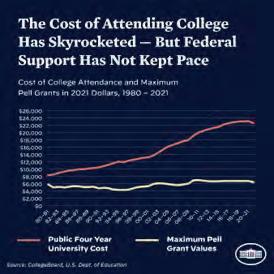
So, where do we go from here? A brief personal survey on student loans has witnessed an average of $30,000 in debt from an M.Div. degree.
Some of the interviewed populations were in denominations that covered all tuition (United Methodist Church (UMC), Lutheran, Catholic, Presbyterian). When looking at the curve, those clergy who had to “foot the bill of divinity school” are closer to high five-to-six-figure debts than the $30,000 amount.
During reconstruction, the Rev. Henry McNeal Turner (prior to his episcopacy) demanded 100 million dollars (3.3 billion in 2022) in federal reparations to send African Americans back to Africa. His reasoning was clear, “We cannot exist here, and if no reformation is possible in this country, rather than be exterminated by mobs and
lynching assassins, we had better ask Congress, or the Nation, for at least a hundred million of dollars to leave this country.”2 The plight of black people throughout the diaspora is not in the same situation as during the Nadir Era of race relations (1877-1905), but the financial strains of debt can be debilitating. Student loans block persons from generating income and building net worth, including but not limited to purchasing a home. It is no coincidence that the demographic groups with the most student loans (blacks owe $25,000 more on average than whites) and the lowest percentage of home ownership (black ownership is 30% lower than white Americans) are African American.3
So, is the issue all on the federal government, or is there also a responsibility for AMEs and other African American churches to change their policies to offset student debt? Our denomination, like the UMC, has home-grown seminaries, whereas our schools have not been able to cover the full tuition compared to the aforementioned denominations. In addition, maybe a policy that requires a master of divinity for all charges requires a second look. Taking a page from the White House, sometimes desperate times calls for desperate measures. If the highest position in the United States is calling for educational and financial reform, maybe our Zion should follow suite. ❏ ❏ ❏
1 House, The. 2022. “FACT SHEET: President Biden Announces Student Loan Relief For Borrowers Who Need It Most - The White House.” The White House. https://www.whitehouse.gov/briefing-room/statements-releases/2022/08/24/fact-sheet-president-biden-announces-student-loan-relief-for-borrowers-who-need-it-most/.
2 The Christian Recorder, October 19, 1893.
3 “Student Loan Debt By Race [2022]: Analysis Of Statistics”. 2022. Education Data Initiative. https://educationdata.org/student-loan-debt-by-race#:~:text=Black%20and%20African%20American%20 student,payments%20of%20%24350%20or%20more.


18 | PAGE The Christian Recorder THECHRISTIANRECORDER.COM NOVEMBER 2022
EDITORIAL
Dr. Byron Washington Guest Editorial
b s m S A s a f S p d a C C l










 Rev. Tiffany Brooks, 2nd Episcopal District
Rev. Tiffany Brooks, 2nd Episcopal District



















 Rev. Dr. Alfonso Wyatt, Columnist
Rev. Dr. Alfonso Wyatt, Columnist


















 Kiratiana E. Freelon, Columnist
Kiratiana E. Freelon, Columnist


 Sister Angelena Spears, Philadelphia Conference Reporter
Sister Angelena Spears, Philadelphia Conference Reporter













